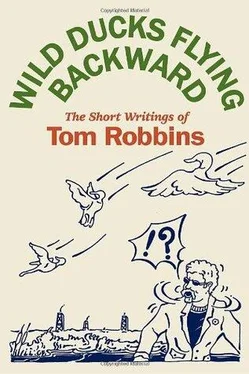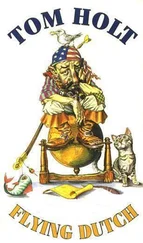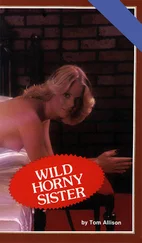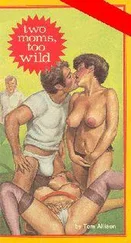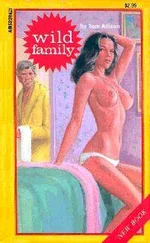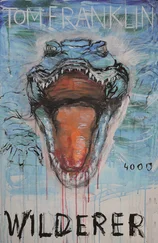In the past, unfortunately, I’ve usually bounced my Tarzan yells off the insensitive ears of cocktail-lounge commandos, invariably attracting the wrong kind of attention. Here, at last, in the glades of the Selous, it is released in proper context. It gives me that old Weissmuller Saturday-matinee primal chill as it comes quavering out of my throat to mix in the Selous twilight with the smoker’s coughs of a distant pride of lions, the spooky erotic murmurs of a treeful of waking bats, and that ceaseless, ubiquitous pulsebeat of body Africana, the echoing hoot of the emerald-throated wood dove.
Our last day in the Selous is structured much like the others: up at dawn for a game walk into the bush, breakfast, break camp, two hours on the river, lunch, rest, two more hours playing Dodg’em car with the hippos, set up camp, another game walk before dark, dinner, bed. At the end of such a day, one requires no tsetse injection to speed one’s slumber. On this final eve, however, many of us lie conscious, listening, holding on to every note of the ninety-piece orchestra of the African night. It is as if we dread the morning and our return to what we moderns like to think of as “civilization.”
I’ll bet that Chicago Eddie, supine amidst his ruined tennis whites in the adjacent tent, is recalling the impalas we had seen that dusk, crossing a narrow ridge single file, so that we could count them the way a child at a railroad crossing will sometimes count boxcars. Incidentally, there were exactly sixty-five of them silhouetted against the setting sun.
And I venture that Kathy, an erudite woman with a library of wildlife manuals in her knapsack, is still puzzling over the blank stare the aging guide M’sengala had given her when she’d asked whether the rare hartebeest we’d spotted was Lichtenstein’s hartebeest or one of the other varieties. After that, M’sengala cracked up every time Jim and I inquired if we were looking at Rauschenberg’s wildebeest. Rosenquist’s bushbuck. Wesselman’s waterbuck. Catskill’s borschtbuck. Or Goldberg’s variations. Knowing not ten words of English, he couldn’t possibly savvy the cultural references, but M’sengala got the point.
Certainly M’sengala, with his goofy, infectious laugh, is in my thoughts. I’m remembering how shocked he’d looked when Curt had slipped the Sony Walkman headset over his leathery ears and turned up Huey Lewis and the News, and how quickly he’d begun to grin and then to dance, as if he could not stop himself from dancing. M’sengala got down! The Selous, itself, gets down. Down to basics, to the curious if natural rhythms of life.
And death. For if there’s abundant life in the Selous, there’s abundant death as well. We’d seen a pack of wild dogs cripple and devour an impala; a bloated hippo corpse being ripped to shreds by twenty crocodiles; the remains of a feline-butchered wildebeest, black clouds of flies buzzing like paparazzi around its instant celebrity of blood. We could hear those flies from thirty yards away.
Yes, there are ongoing dramas of death in the Selous, but except for the small amount imported by poachers, there’s no unnecessary violence, no greed, no cruelty. Nor is there politics, religion, trendiness, ambition, hype, or sales pitch. Perhaps it’s the very purity of the Selous that makes us cling to it, reluctant to let go.
For two weeks, we have traveled in the realm of the eternal. There is escape from the prison of the past, disinterest in the promise of the future. There is no other place. The Selous is here . There is no other time. The Selous is now .
And as we lie in our tents on the grassy plain of eternity it must occur to each and every one of us that the Selous is the way the world was meant to be — and that everything else is a mistake.
Nonetheless, we do return to carpeted home and electronic hearth, and I have to tell you, folks, now that I’m back, I’m ready for a nap. If it should prove that a tsetse fly has, indeed, drugged my vital fluids, then, O river gods, grant me a graceful fall into the sleep of the Selous. The bright slumber of Africa. The snooze of Kilimanjaro.
Esquire, 1985
As clueless as Rome before the barbarians stormed its gates, as oblivious as Pompeii on the eve of Vesuvius’s genocidal belch, Seattle was totally unprepared for the rape and pillage to which its youth were subjected at Eagles Auditorium last night. Neither was it ready for the anointment, the empowerment, or the sanctification that were also part and parcel of a rock concert cum psychic ordeal cum full-blown ecstasy rite.
For some time now, Seattle’s adopted “house” bands have been The Youngbloods and Country Joe & the Fish, groups whose electrical bananas may shock straight society but who, to their fans, are as folksy and affectionate as psychedelic puppies. Accustomed to having their faces licked, Seattleites were caught off guard by a band that, while it might sniff a crotch or two, definitely does not wag its tail; by a band that embodies the prevailing zeitgeist, with all of its political optimism, spiritual awareness, and liberating transcendence of obsolete values, but embodies it with an unprecedented potency, concentration, and theatrical vehemence; a band that flaunts rather than soft-pedals the threat that the new culture presents to the old culture — and that leaves both cultures rather reeling from the experience.
When, dazed but fomented, we staggered at last from the hall last night, we were each and every one under the spell of four musicians who, innocuously enough, call themselves after simple, ubiquitous, utilitarian devices intended for the closing off or opening up of architectural spaces.
Yes, that would be doors. But, my God, what doors are these?! Imagine jeweled glass panels, knobs that resemble spitting phalluses, mail slots that glow like jack-o’-lantern lips — and not a welcome mat in sight. Enter if you dare, my children, exit if you can.
The Doors. Their style is early cunnilingual, late patricidal, lunchtime in the Everglades, Black Forest blood sausage on electrified bread, Jean Genet up a totem pole, artists at the barricades, Edgar Allan Poe drowning in his birdbath, Massacre of the Innocents, tarantella of the satyrs, bacchanalian, Dionysian, L.A. pagans drawing down the moon.
The Doors. The musical equivalent of a ritual sacrifice, an amplified sex throb, a wounded yet somehow elegant yowl for the lost soul of America, histrionic tricksters making hard cider from the apples of Eden while petting the head of the snake.
The Doors. The intensity begins the moment they stalk on stage and it doesn’t let up until the purge is over, the catharsis complete. Even between numbers, there is no relaxation: no chitchat, no pandering, no horsing around. Like the classical actors of Japan, The Doors project all the more intensity when they are silent. They even tune up with an involvement so fierce it would scare The Mamas & The Papas out of their mama pants and papa pants.
The Doors. Their voice is dark and bloody, a voice from the bowels. Satanic in combustion, devouring in energy, awesome in spirit. The voice of Nietzsche, stopped short in terror, succumbing to madness, lusting for the salvation of flesh. The Brechtian voice of the Berlin Music Hall, warning a new generation of the rising tide of American fascism. A voice soaked with a rabid rage of destruction — yet neither wanton nor negative. Like Shiva, the Divine Destroyer of the Hindu, The Doors kill only to clear the way for rebirth; they evoke the eternal rhythmic balance of life and death, darkness and light — because the doors that really matter always swing both ways.
Читать дальше
